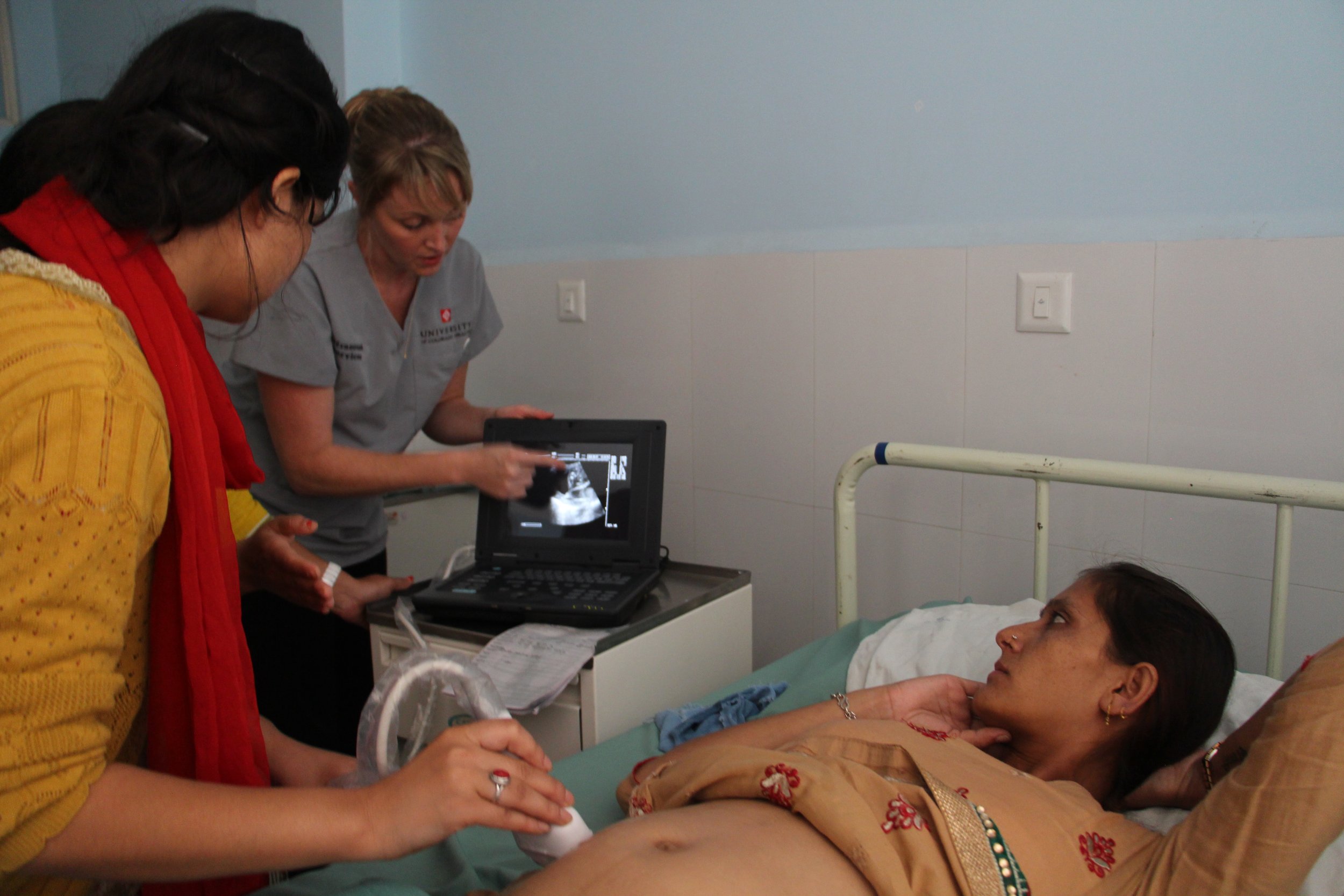Empowering Women through Access to Prenatal Care
Michaela Larson (Associate Director) with her two dogs, Zoey and Lex.
I joined the NYAGI Project because I wanted to be a part of an organization working to empower women. At NYAGI Project, we seek to empower women by increasing access to prenatal care in resource-limited areas. Prenatal care is essential for promoting the health and well-being of pregnant women and their unborn babies. Unfortunately, many women, especially those in low and middle-income countries, lack access to quality prenatal care, leading to poor maternal health outcomes. NYAGI Project teaches health care providers in these areas triage ultrasound skills, empowering women and communities to ensure that mothers have access to the care they need.
Early Detection and Management of Health Issues
A mother is scanned by a midwife in the NYAGI ultrasound training program (Photo Credit: Jason Houston)
Prenatal care involves regular check-ups with a healthcare provider to monitor the health of the mother and fetus. During these check-ups, the healthcare provider can detect and manage any health issues that may arise during pregnancy. NYAGI Project teaches prenatal triage ultrasound so that providers in resource-limited areas can detect potential abnormalities during pregnancy and recommend mothers to seek further care. Early detection and management potential issues can reduce the risk of complications, ensuring that both the mother and baby are healthy.
Empowered Decision-Making
A mother in Haiti holding her baby. (Photo Credit: Jason Houston)
Knowledge is key - when women have access to prenatal care, they are empowered to make informed decisions about their health and the health of their baby. NYAGI Project tries to help by trying to expand access to health information during pregnancy in remote areas where prenatal health care services may be limited. When mothers are informed about their pregnancies and potential risks are identified, they are able to make decisions and seek care that will best support their birth.
Empowering women through maternal health access is not only a moral imperative, but it is also a smart investment in public health. When women are healthy, their families, communities, and nations thrive. By expanding access to prenatal care, we can help build healthier, more equitable, and sustainable communities for all.




